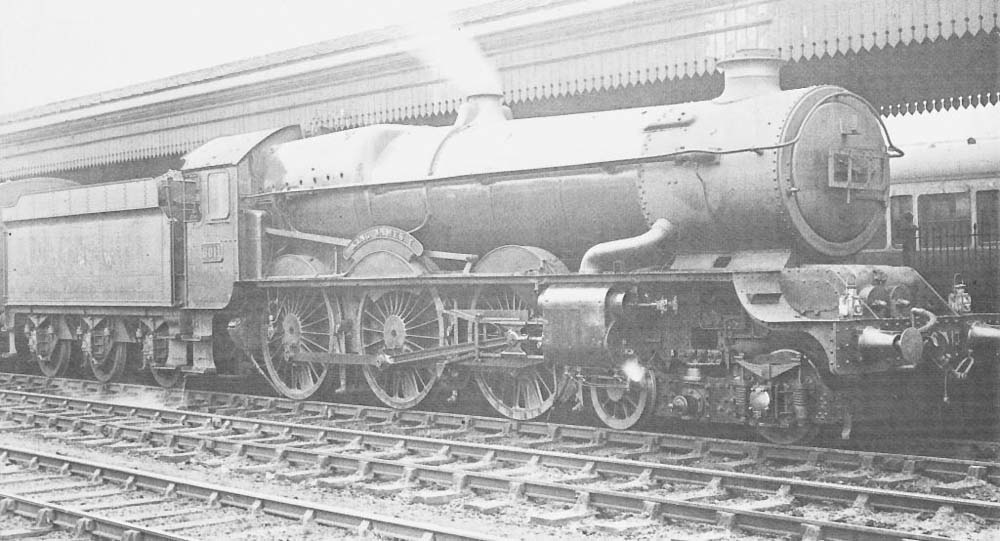|
|
 |
 |
|
GWR Route: Banbury to Wolverhampton
GWR Route: North Warwickshire Line
Birmingham Snow Hill Station: gwrbsh1756
 |
Great Western Railway 60xx (King) class 4-6-0 No 6011
‘King James’ in Platform No 6 with a down express from London in
1947. Note the stencilled shed name SRD (Stafford Road, Wolverhampton) adjacent
to the buffer beam. Also the locomotive has a speed recorder on the rear
coupled wheel (fitted circa 1937) and the framework for the three digit train
indicator codes on the smokebox door. No 6011 was built at Swindon Works in
April 1928 as part of lot 243. This lot was the first batch of King class
locomotives built, the first one being introduced in June 1927. The King class
were designed by the Great Western Railway’s Chief Mechanical Engineer
Charles Collett to be the most powerful passenger locomotives in Great Britain
and they certainly performed well over the stiff gradients of the West Country
main line with heavily laden summer holiday expresses. Fitted with the massive
No 12 standard boiler with a 250 lb pressure, the tractive effort at 85% was
40,300 lb, but no power group letter was allocated to these locomotives. The
maximum axle weight was 22 tons, 10 cwt, which required a new route
classification of hatched red to be introduced on the engine route maps and
this was indicated on the locomotive by two red discs on the cab sides. The
initial hatched red routes were between Paddington and Plymouth and Paddington
and Wolverhampton. Previously the maximum axle weight allowed on any route was
20.5 tons and several bridges had to be replaced on these hatched red routes
(see Widney Manor Station). Excepting some modifications to the bogie and
trailing coupled wheel springs to improve riding, there were no major changes
to the King class before 1947, when a four row super-heater and mechanical
lubricator were trailed and subsequently introduced to the entire class shortly
after nationalisation. Inferior coal and increased labour costs required
further modifications and the blast-pipe and chimney were redesigned to improve
draughting. Self cleaning smoke-boxes were also introduced, as were larger
radius steam pipes. In March 1956, No 6011 received a double chimney, a
modification which had been found to further improved performance. No 6011 was
initially allocated to Old Oak Common shed in London. On 3rd February 1939 the
locomotive was moved to Bath Road shed, but was transferred back to Old Oak
Common shed in June 1943. On 17th January 1947 No 6011 was allocated to
Stafford Road Wolverhampton shed, from where the locomotive was withdrawn on
18th December 1962. No 6011 was cut up at Swindon on 25th January 1964. The
locomotive’s final mileage was 1,718,295 miles.
Robert Ferris
 back back

|
|
|
